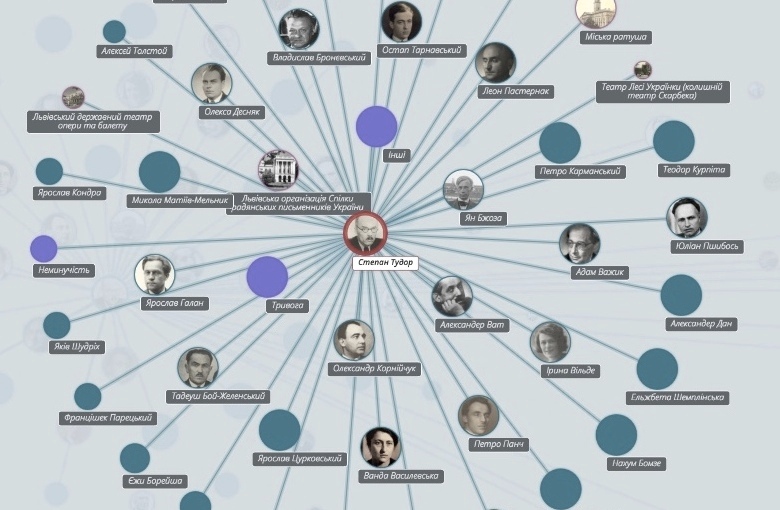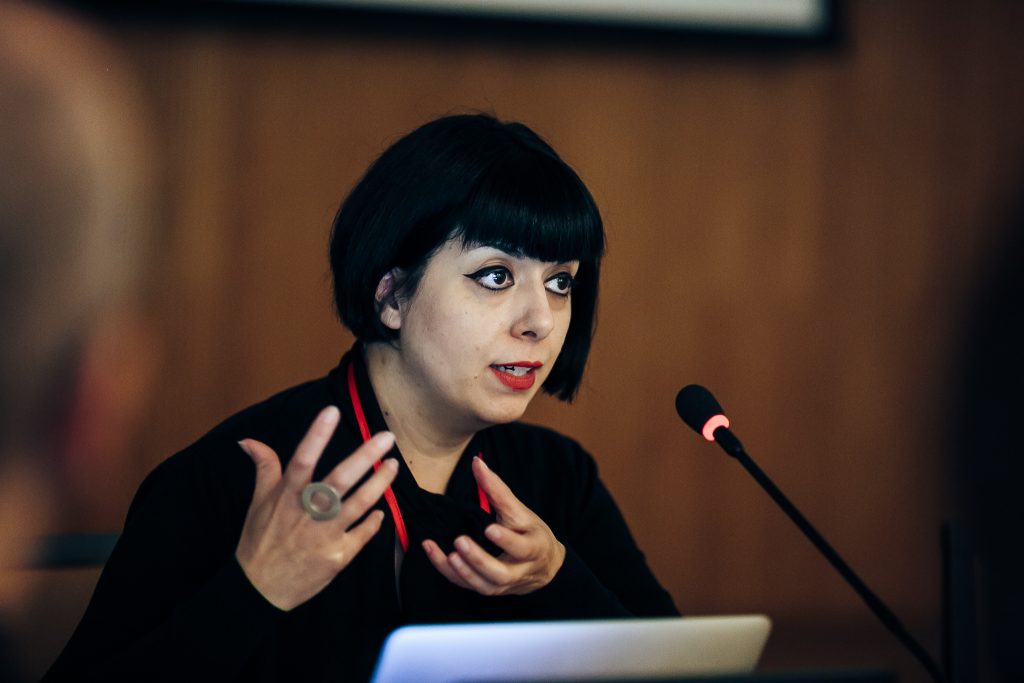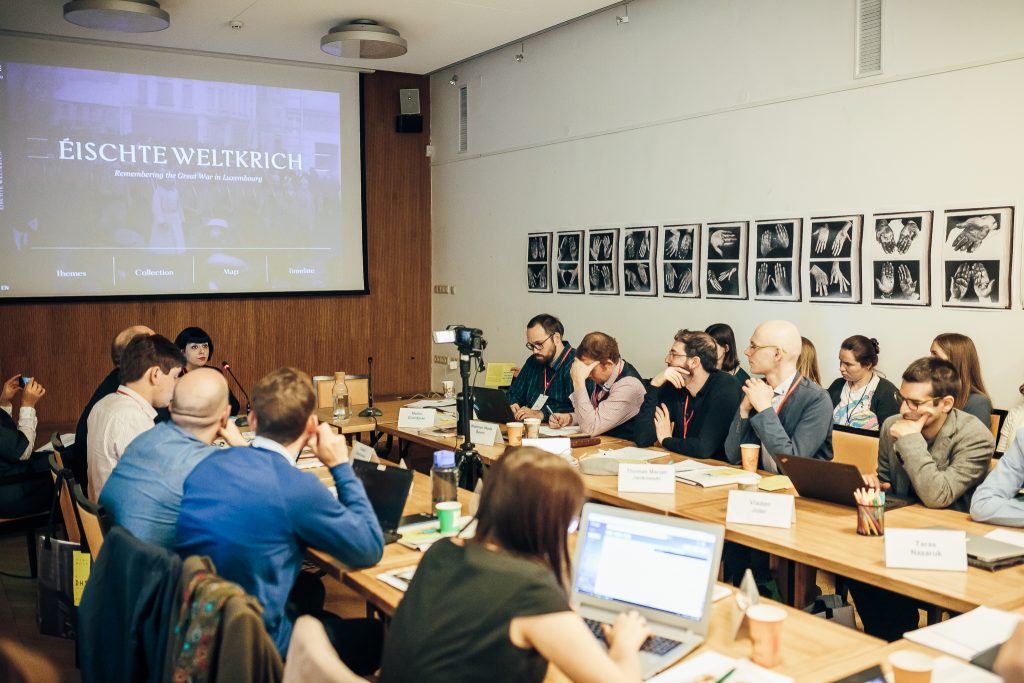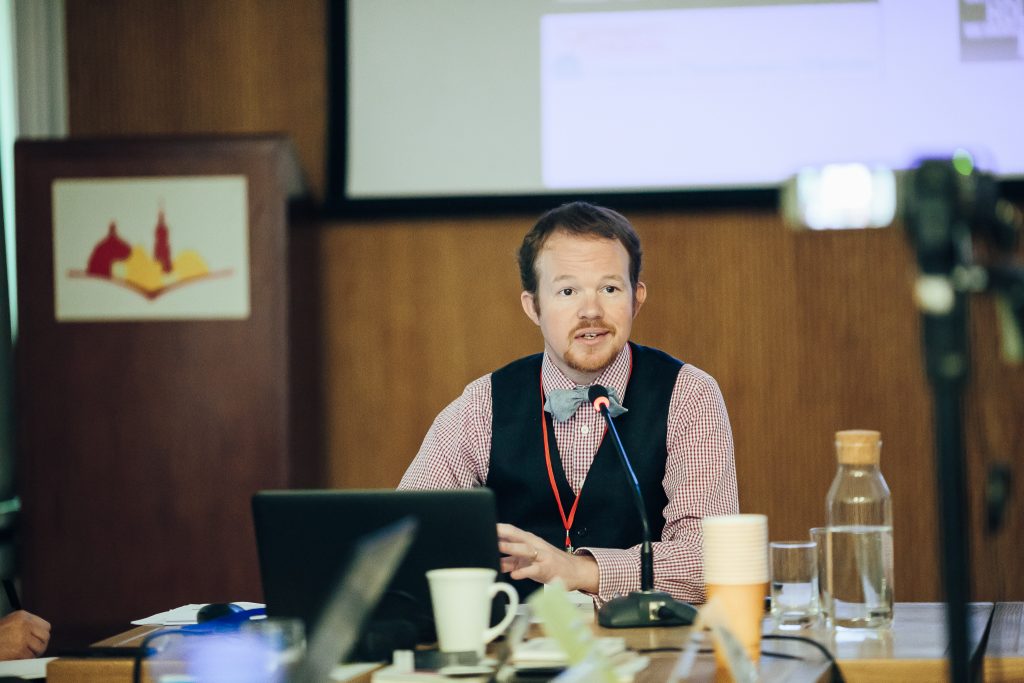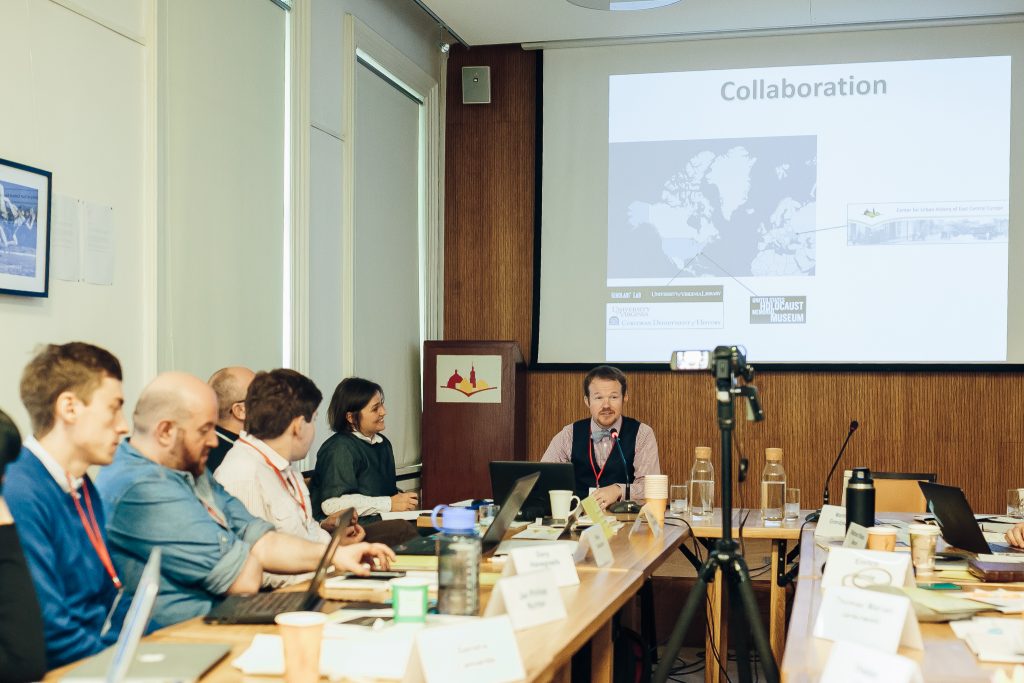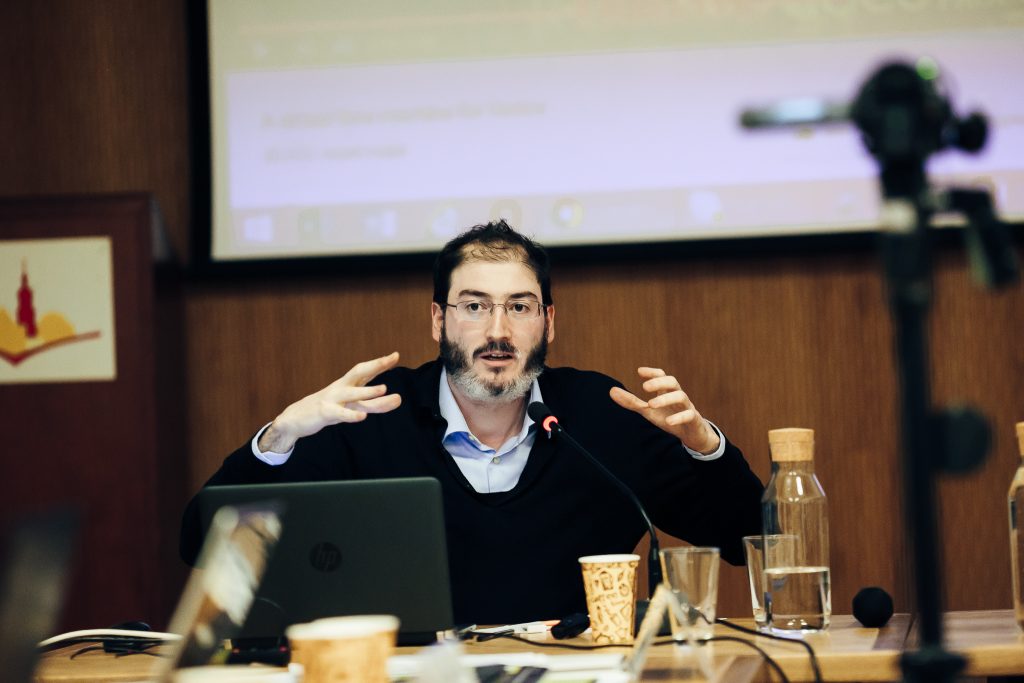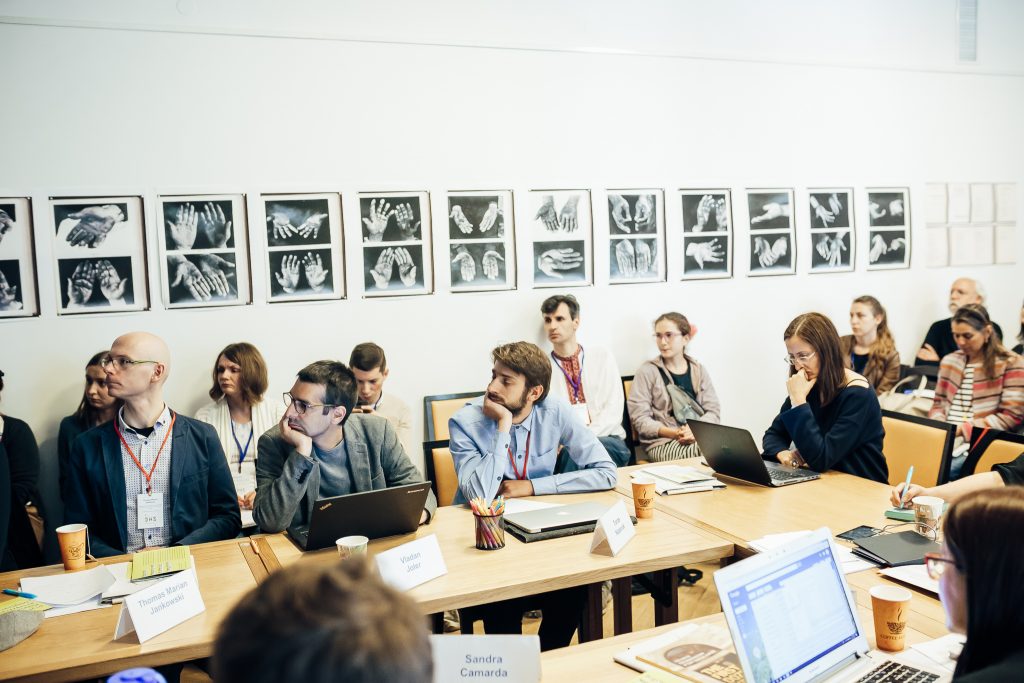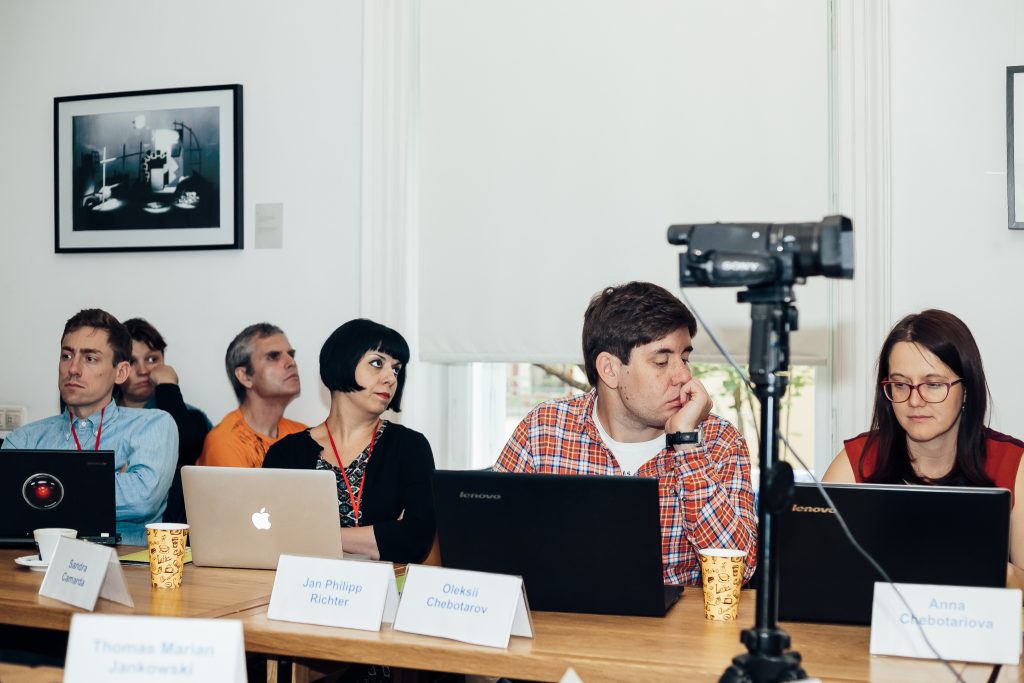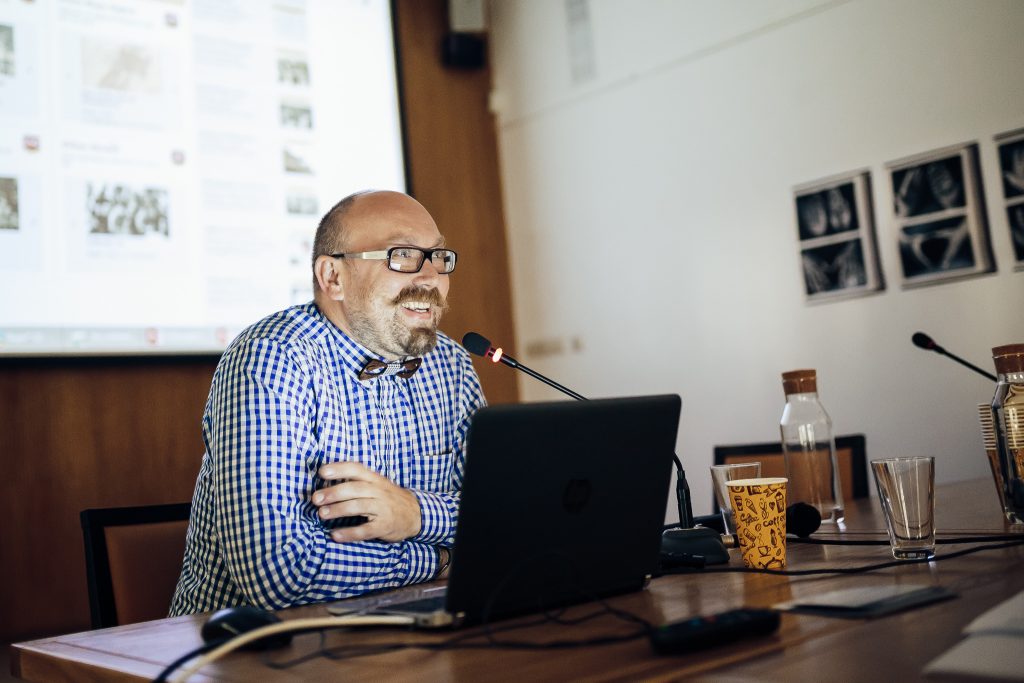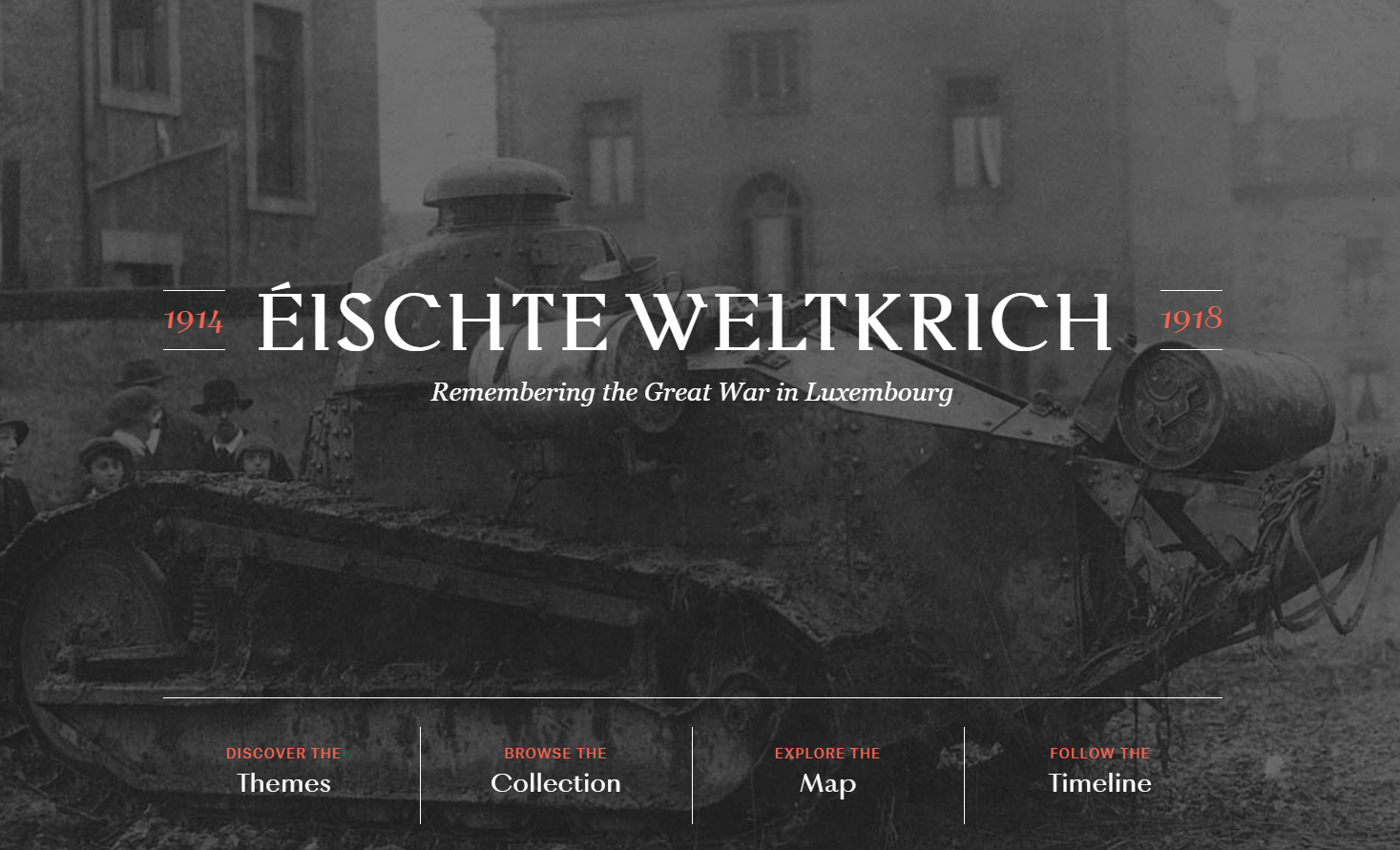Digital Mapping and Historical Imagination
May 17-18, 2018
Center for Urban History, Lviv
The seminar "Digital Mapping and Historical Imagination" explores local opportunities and the application needs in humanities and social research of new media tools, such as data visualization and geo-tools, in the context of global trends, with a special focus on urban studies. New technology has largely intensified the development of contemporary research and helped develop new digital history projects. At the same time, in the recent years, we learned about the notions of information overload, digital flood, information explosion, and numerous versions of this idea.
What can the new revolutionary computer technology, digital methods, and new social surveys teach the humanities scholars? How does it influence the establishment of new archives and libraries interested in gaining huge volumes of information? What is the impact of technology on functioning of research institutions and communities, local or transnational? Do the "new media" influence the methods of historical research, or only the presentation of their results? Does the emergence of additional, or sometimes "excessive historical sources" motivate the development of new approaches to research?
The issues to be discussed during the seminar include a special focus on mapping and imagination. The seminar includes several blocks, while the researchers will discuss the topics of migration and mapping of data, representation of military and urban experiences in Europe, shaping tools for visualization of urban intellectual networks, the existence of media cities and the use of digital methods in historical research.
Working language – English.
Digital History Seminars of the Center for Urban History explores methodological, ethical and theoretical aspects of generation, collection and analysis of digital or digitalized photographs and video recordings as testimony on the past and the worlds in which people used to live or are still living. In addition, the seminars also touch upon the issue of awareness capacity of historical visual data used for comprehensive presentations and lectures for different audiences. The goal of the seminars is to have a discussion on available possibilities and challenges of digital history among researchers.
Seminars consist of three major blocks:
- Artifacts (photographs, files, films, etc.)
- Technologies (camera, antenna, screen, print, software, etc.)
- Visual and digital methods (sense and analysis)
The event is implemented as part of "Digital History Seminars" of the Center for Urban History of East and Central Europe as supported by the University of St. Gallen (Switzerland).
Credits
Image Gallery by Taras Bovt
